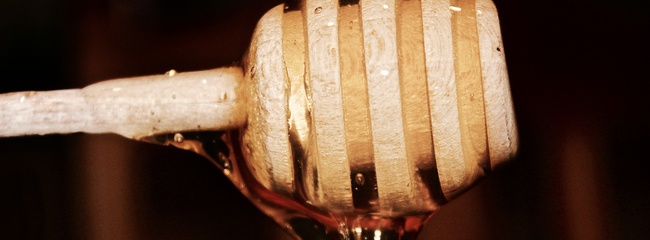Remember when your Lord said to the Angels, “I am going to create a Deputy on earth!”
And He taught Adam the names, all of them; then presented them before the angels and said, : Tell me their names, if you are right.” (Baqarah 2:30-31)
Like a seed potentially possesses the tree inside it, the seed of knowledge was placed inside our father Adam (as). This is how the story began and we are seeing the exfoliation of that seed till today. Above all sciences, what made the human family so special in the sight of God, was its unrivalled cognizance of God that lie both at the foundation and the peak of human knowledge.
"Know! That there is no God but Allah!" [47:19]
We have reached a very interesting time in human history; wherein we have never known so much about our world, the Universe and our own body. But, ironically, there has never been a time in history when the human being has been so alienated from his own self and the world. This is indeed a strange paradox.
We know how a single Hydrogen atom gave way to the mesmerizing multiplicity around us, but we don’t know WHY it all happened. The awesome power inside the smallest unit in creation- ‘atom’- was unlocked for us, but instead of using it to benefit humanity, we often used it to terrorize and threaten existence with extermination as a whole.
In every walk of modern life, we see this consistant pattern of contradiction. We know so much, at the same time we don’t know anything at all. From exploiting natural resources to a point of depletion at a heavy cost of global catastrophes to altering the global economy in order to siphon all of the world’s assets to a select few.
The Messenger of Allah (Peace be upon Him) said,
“An example of the guidance and knowledge with which Allah has sent me is that of rain that falls on different kinds of lands.
One land is good; it accepts water and produces vegetation and grass in plenty.
Another kind of land is dry with a solid bed that preserves the rain water so that people can drink and irrigate from it.
The third kind of land is porous that can neither retain water nor produce vegetation. - [Bukhari]
It shouldn’t take us long to realize that the present age fits the third description completely, meaning it doesn’t materialize into benefit for anyone whatsoever!
KNOW since 2012, has actively worked to decode this global phenomenon to its core roots. And here we we can explain that the fault lies in two key things;
1) The Acquisition of knowledge
2) The Application of Knowledge
It is essentially an issue of defunctionality in both Acquisition of Knowledge and since the end reflects the means, so its application is also far from beneficial.
Acquisition of Knowledge
Knowledge is on of the attribute of Allah. He is Al Aleem- The All Knowing. All knowledge comes from Him.
“And they cannot grasp any of His Knowledge except that which He wills [them to attain]” (Ayat al Kursi 2:255)
As knowledge is something that inherently belongs to God, it has to be acquired through Him and hence applied in ways that are approved by Him. By acquiring knowledge from God means improving our Epistemology.
What is Epistemology? The theory of knowledge, especially with regards to its methods, sources and validity. Modern epistemology only gives credibility to knowledge acquired through the senses. But developments in neuroscience and Quantum Physics over the last few decades slowly are deconstructing this paradigm. We know now that whatever we perceive of the universe is just an interpretation of our brain on the sense data it receives. This is a second hand view of the world. We can never know the absolute reality out there (called Nuemenon) from our external senses.
“All the know is the outward form of the worldy realm….” - (Surah Rum-7)
We at KNOW have revived what is called Holistic Epistemology that synthesizes Divine Revelation and Spiritual Insight with External observational knowledge. Truly it was the combination of Revelation with reason that made previous civilizations great. Their developments ensured both the spiritual and physical well being of society as a whole, regardless of color, status etc, which is completely alien to Modern Civilization. Why was this methodology so effective in traditional societies? Because they considered Methodology to be conceptually inseparable from the ultimate purpose of the human sojourn or the pertinent question of the spiritual destiny of man.
The Qur'an calls this approach the Meeting of the Oceans (Majma’ul Bahrain in Surah Kahf)- Imam Baydawi (ra) profoundly describes these as the ocean of external knowledge and the ocean of Internal Spiritual knowledge, and the Human being stands at the interface between the two.
Question: When there is an apparent contradiction or a need to make a judgement then what will stand in judgment of what?
The Quran and centuries of Muslim thought have been very clear on this. The Qur’an is the Furqan (The Criterion) to judge everything. From the Sunnah, to science, history, geopolitics or economics.
For those who assume the Qura’n to be just a moral/ethical guide, which it most perfectly is, but in its own words “We have sent down the Book to you as an explanation of EVERYTHING and guidance, mercy….!” (16:89)
Ibn Abbas (ra) would say, “If I lost the halter of my camel, I could find it inside the Quran”.
Meaning there are oceans inside each and every letter of the Quran, which when read properly can open up new avenues of knowledge- personal or universal.
“Every verse in the Quran has an outward meaning, an inward meaning and a point of ascension.” (Baghawi).
Imam Suyuti (ra) would say that, “Every ayat in the Quran has 60,000 different meanings”. The Quran is an ocean has has no shore.
The Prophet Muhammad (PBUH) emphasised the importance of acquiring knowledge in many ways:
- TIME: "Seek knowledge from the cradle to the grave."
- PLACE: "Seek knowledge even if it is far as China."
- COMMUNITY: ”Seeking of knowledge is a duty of every Muslim.”
- SOURCE: ”Wisdom is the lost property of the believer"
"In Islam, we do not have any division between the Islamic and secular sciences. Our curriculum should have all the beneficial sciences. You cannot teach Sahih Bukhari without teaching psychology and economics. Bring unity to the curriculum. A divided curriculum will continue the problems.” - Shaykh Dr. Akram Nadwi
“In Islam there is no division between sacred and profane knowledge, and consequently, the pursuit of physical science is an act of ibadah. It is true that the highest level of knowledge is the knowledge on Din (religion), but the process of knowledge is such that one cannot understand the highest level of knowledge unless one builds up the lower.” - Maulana Fazal-Rahman Ansari
Application of Knowledge
Imagine if someone gives you a gift, the last thing any decent person would do is to use that same gift against the giver. But the modern age is characterized by this very trait. The modern human being is obsessed with reversing, abusing the order of nature, hence using the gift of knowledge in defiance to the Giver. We see it in genetically modified food, ecological crisis, antibiotics and the worldwide humanitarian crisis. So clearly something is seriously wrong with our application of knowledge. The fact that research shows our children are filled with rage and the 21<sup>st</sup> century was the most violent time in human history, really tells us a lot about our dominant culture of which knowledge lies at the foundation. Imagine how our world would look like if knowledge was used to benefit all. Imagine the technology, the global reach, the resources, all for the benefit of humanity! The fundamental principle of Islamic Shariah (wrongly translated as law, rather it is a code of life) is to “Maximize Benefit and Minimize Harm”
When Knowledge brings benefit, it has evolved into wisdom. And God says, “Whoever has been given wisdom has certainly been given much good. And none will remember except those of understanding.”(2:269)
About
KNOW Team
We believe that everyone has something to learn, and everyone has something to teach. Our vision is to create a global education platform which empowers millions to fulfill their purpose and potential.





